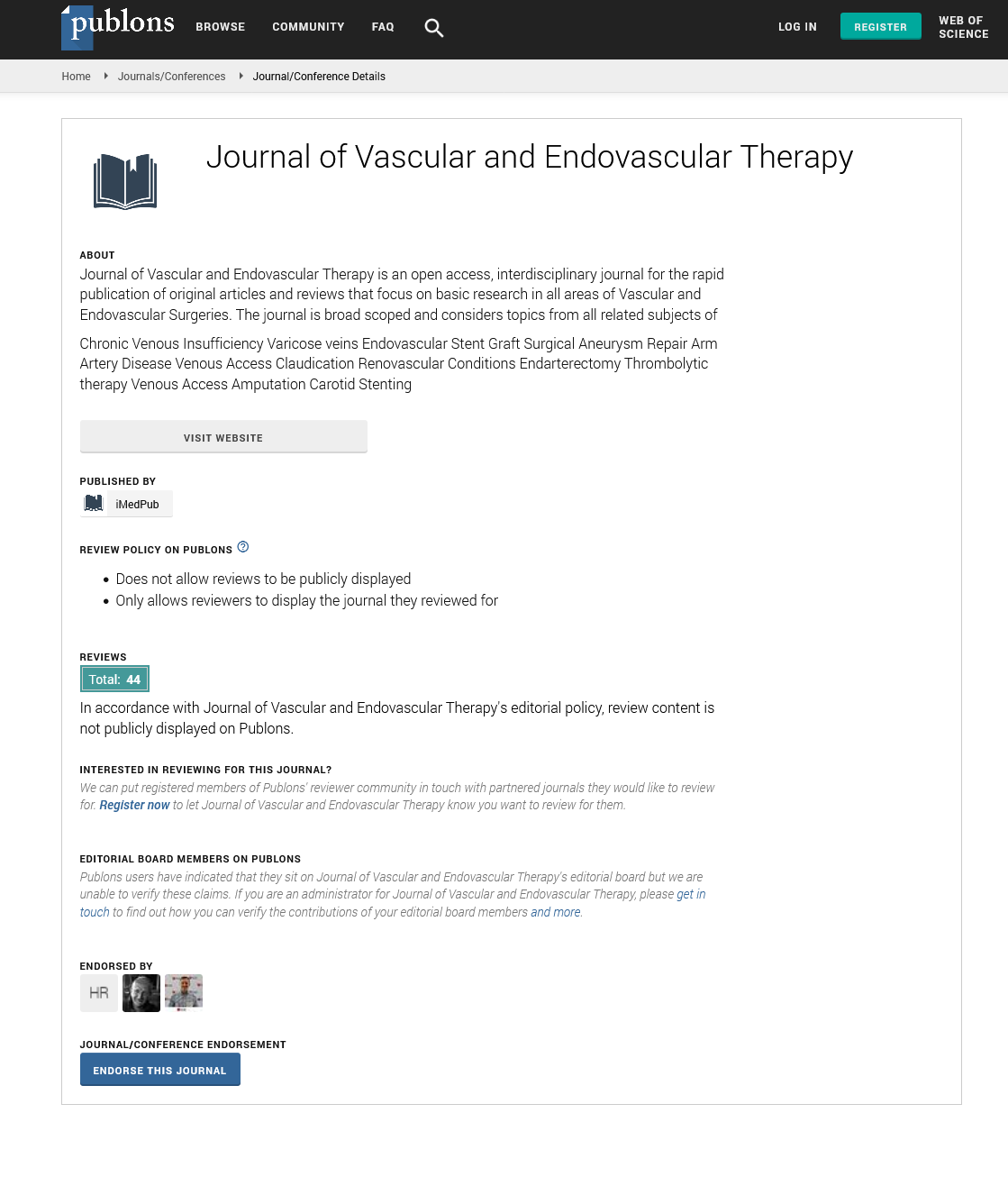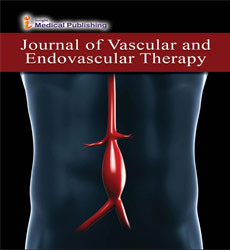Abstract
Initial Experience with Analogues of Prostaglandins for Haemodialysis Access-Induced Distal Ischemia
Introduction: Haemodialysis access-induced distal ischemia (HAIDI) is a common disabling complication that can be ascribed to an excess of blood flow through a haemodialysis vascular access, to the lack of arterial adaptation to the fistula and/or to arterial stenoses. Aim of the present study is to describe a preliminary experience with two analogues of prostaglandins, iloprost and misoprostol, for HAIDI treatment.
Materials and methods: Patients with HAIDI stage 1 and 2a were treated for 10 weeks with misoprostol 400 μg once per day. Patients with HAIDI stage 2b and 3 received a selective intra-arterial injection of iloprost 0.025 mg and subsequently an intravenous continuous injection of iloprost 1.25 ng/kg/min for 72 h, finally misoprostol 400 μg once per day for 10 weeks. Evaluation of treatment benefit included vascular fluorescence quality control, pain evaluation and QOL assessment.
Results: Sixteen patients were treated with PG: twelve with HAIDI stage 1 and 2a, four with HAIDI stage 2b and 3, major local or systemic morbidity and adverse effects to the drugs were not observed. In all cases symptoms, QOL and vascular fluorescence improvement was observed. At the end of the study 25% of the patients did not present HAIDI symptoms while 75% negligible symptoms. All the patients refused surgical option.
Conclusion: The treatment of HAIDI has demonstrated to be safe and effective in a selected cohort of patients
Author(s):
Marco Franchin, Gabriele Piffaretti, Patrizio Castelli and Matteo Tozzi
Abstract | Full-Text | PDF
Share this

Google scholar citation report
Citations : 177
Journal of Vascular and Endovascular Therapy received 177 citations as per google scholar report
Journal of Vascular and Endovascular Therapy peer review process verified at publons
Abstracted/Indexed in
- Google Scholar
- Open J Gate
- Publons
- Geneva Foundation for Medical Education and Research
- Secret Search Engine Labs
Open Access Journals
- Aquaculture & Veterinary Science
- Chemistry & Chemical Sciences
- Clinical Sciences
- Engineering
- General Science
- Genetics & Molecular Biology
- Health Care & Nursing
- Immunology & Microbiology
- Materials Science
- Mathematics & Physics
- Medical Sciences
- Neurology & Psychiatry
- Oncology & Cancer Science
- Pharmaceutical Sciences


